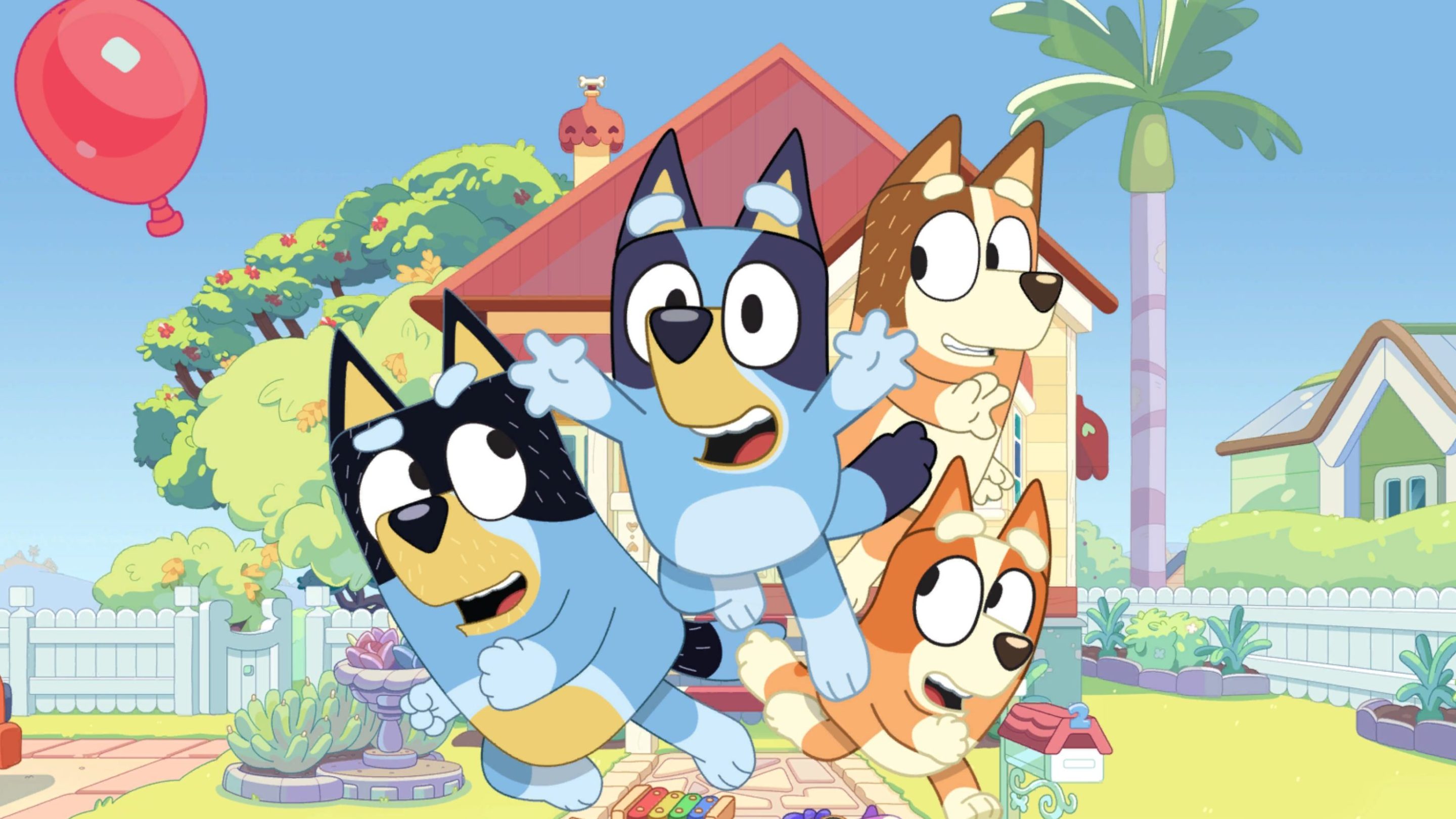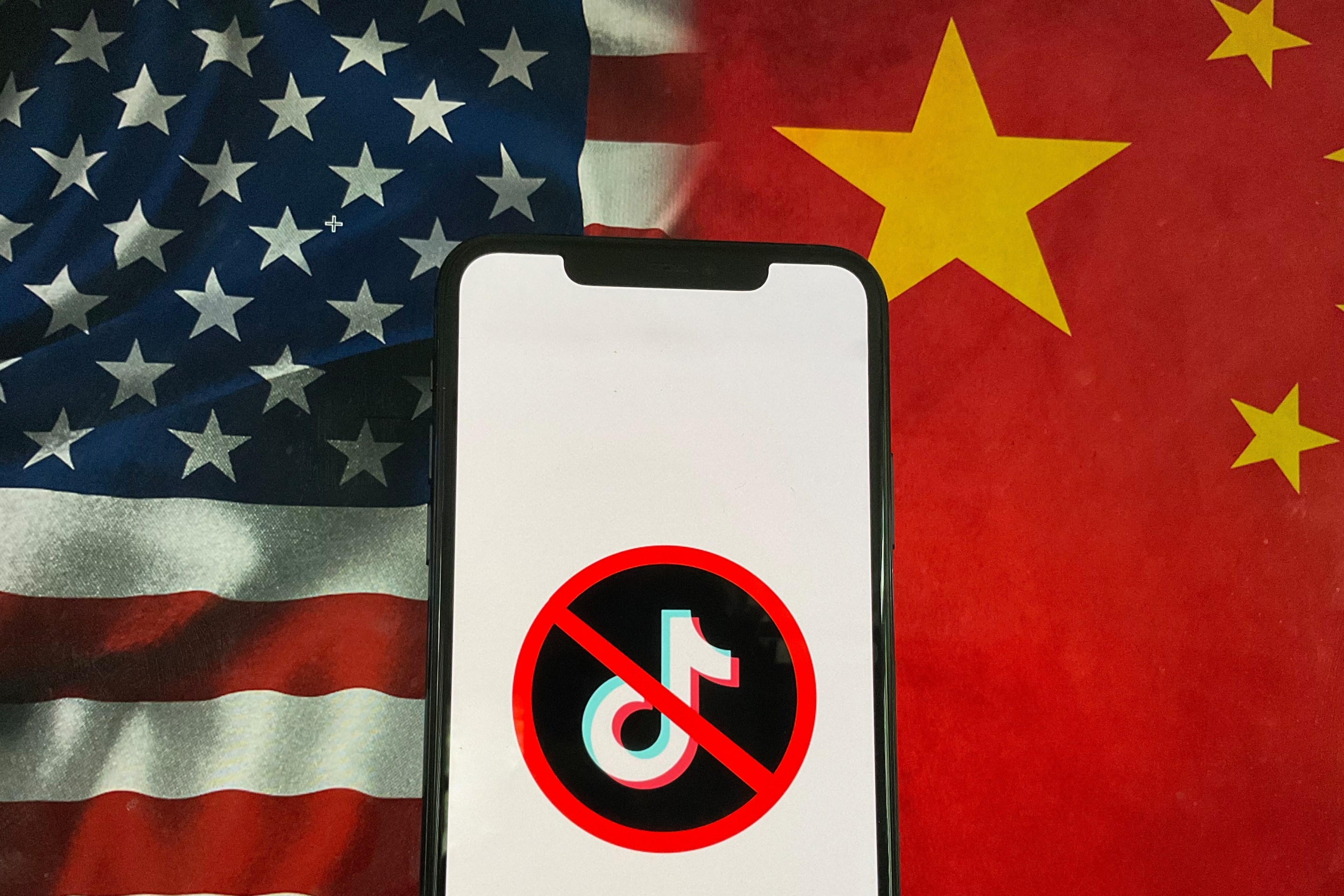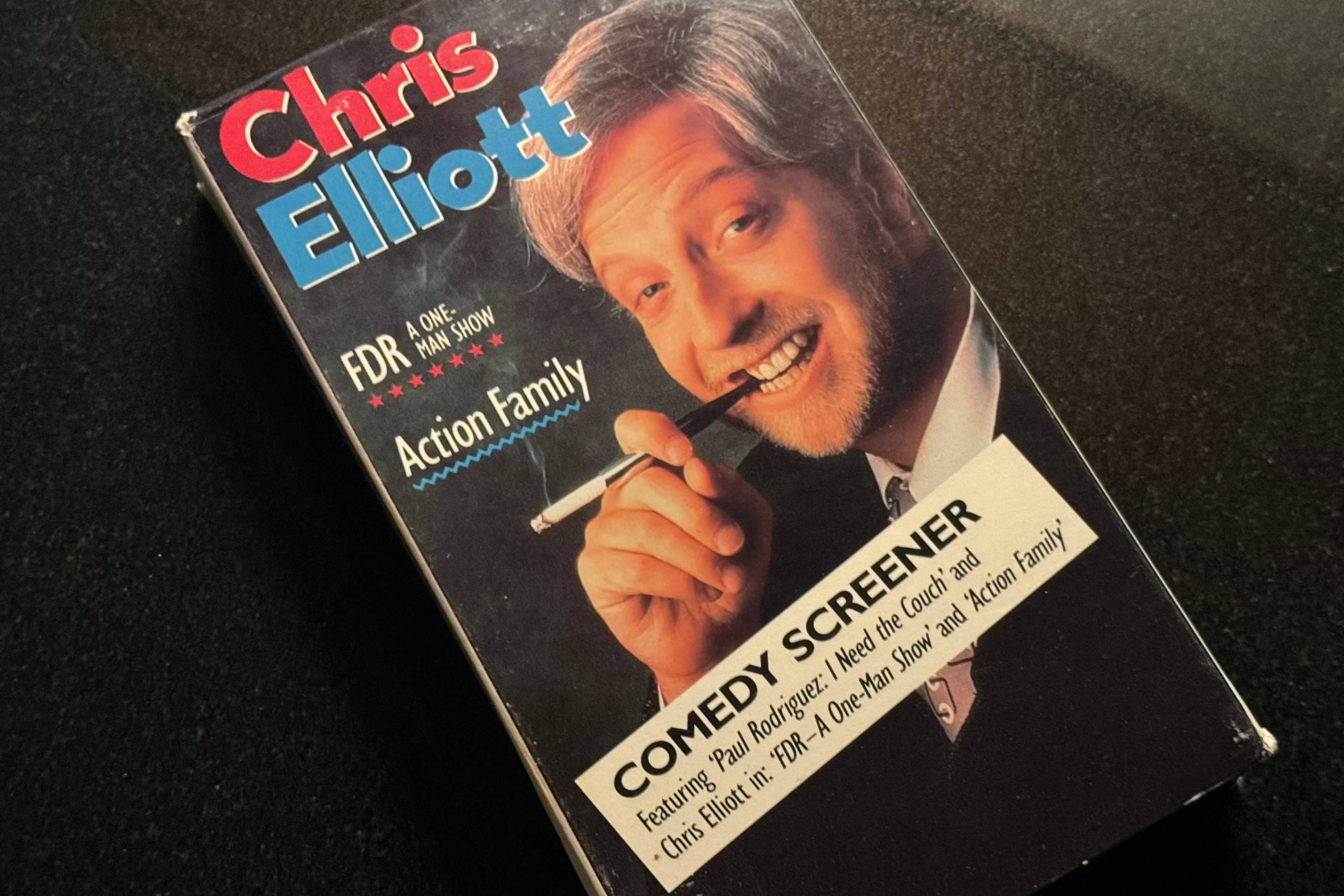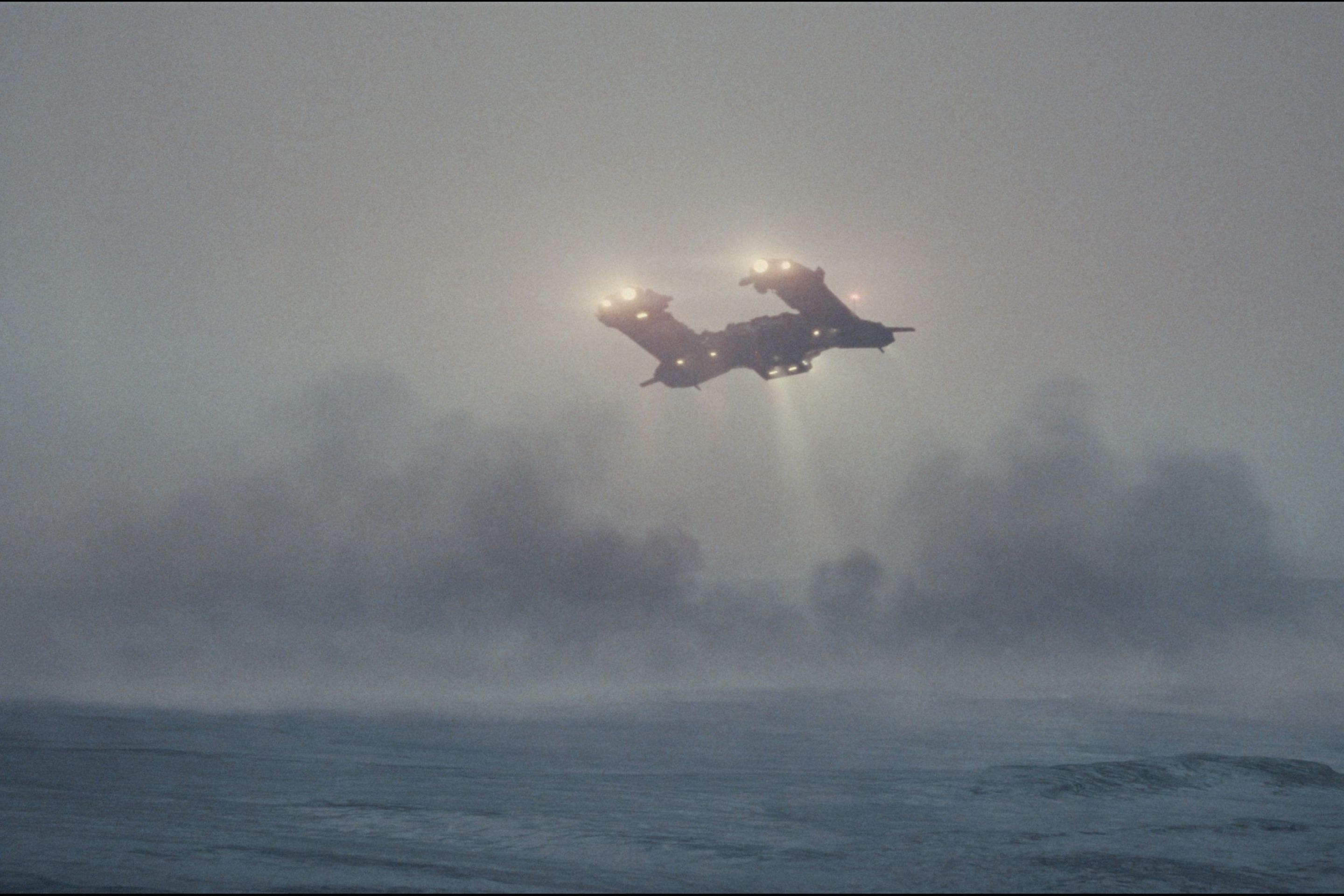I Didn’t Need These Feelings, Bluey
The latest episode of the popular kids’ show has a lot going on
10:13 AM EDT on April 15, 2024
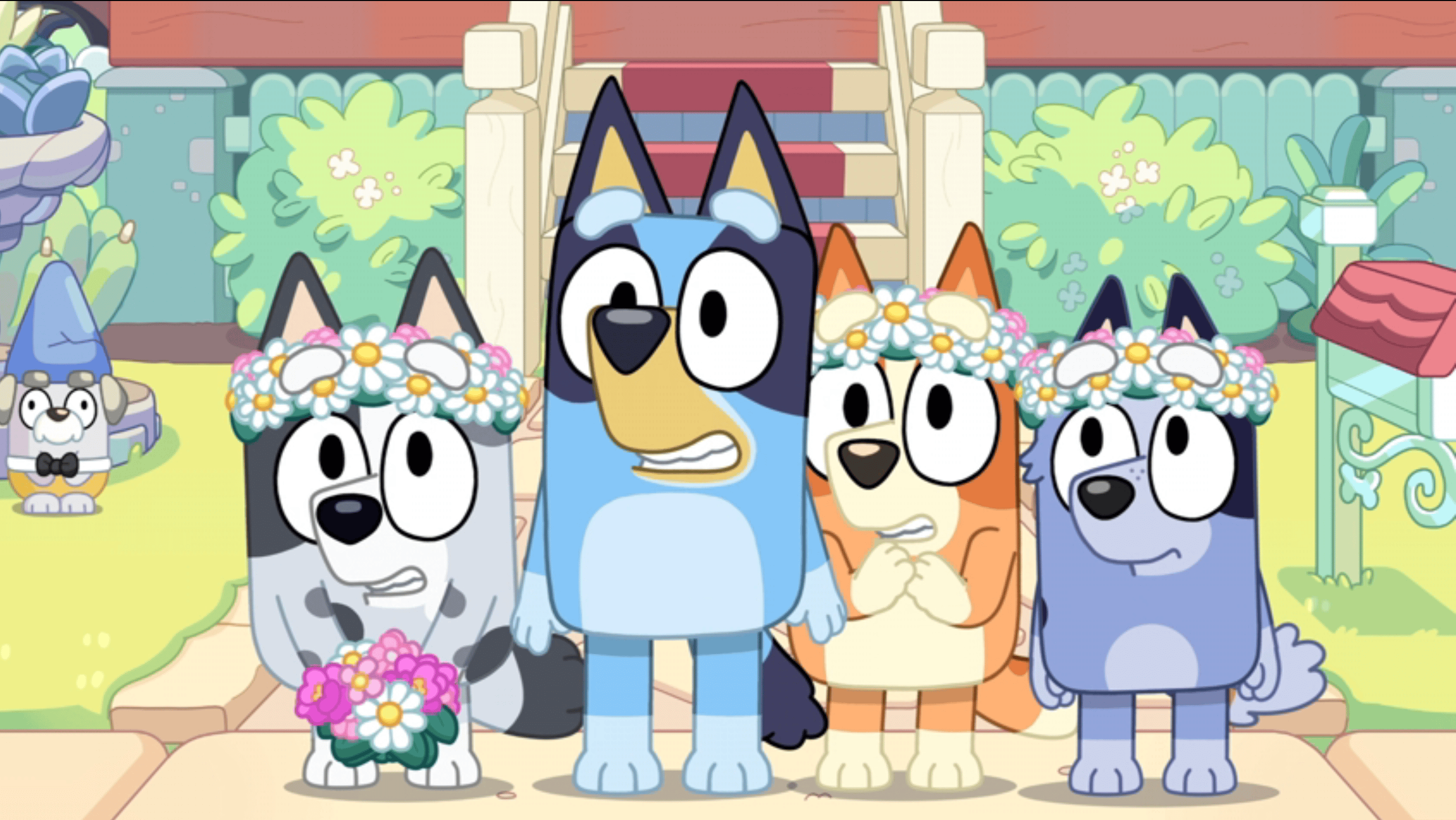
Bluey is a very popular cartoon show for kids, and also for people like me, a childless adult who can justify watching a kids’ show by blogging about it. A new episode, called “The Sign,” came out yesterday; at 28 minutes, it’s a lot longer than other Bluey episodes, and people are having a lot of feelings about it. Due to some stuff happening in my life, my feelings were very complicated.
I can’t really talk about why without totally spoiling “The Sign” for you, so here’s your warning to turn back if you haven’t watched it yet.
In “The Sign,” the Heeler family is selling their iconic house because dad Bandit has gotten a new job in a different city. The family has a lot of conflicting feelings about it: the adults are worried it’s a mistake, but think it will be good for their family. Bingo, the youngest, doesn’t seem too concerned, but we find out later that’s because she doesn’t know that selling the house means they have to move out of it. Bluey is distraught, and various people in her life try to help her cope with the unknown future she’s facing.
The Heelers are throwing a wedding at the house, which goes wrong when the bride, Frisky, runs off. Finding her drives the action of the episode, in part because Frisky offered to help Bluey remove the “For Sale” sign from the yard. Bluey reasons that if the sign is gone, no one can buy the house, so the family can’t move. Bluey is very good at putting the audience into the mindset and worldview of kids, and some of the episode’s emotional weight comes from following this child reasoning only to watch Bluey face adult realities when she finds out the family has to move anyway.
I perked up when I realized “The Sign” was about moving, because I’m currently in the process of moving too. In November 2022, I moved to DC from New York to run Launcher, the games section of The Washington Post. I was thrilled about the job, though less so about the move; I’d been living in New York for 20 years, and I had a life and a community that were important to me there. I didn’t want to move, especially not to a totally unfamiliar town, but the opportunity made it feel worth it.
Two months later, The Post closed Launcher. Some of the team, like Aftermath co-founder Nathan, were laid off, and some of us found other roles at the paper. While I felt lucky to not be unemployed, I was never really able to get over the betrayal of how swiftly my time at Launcher ended. My new boss and team were great, and I learned so much working with folks across The Post, but it simply wasn’t the role I’d uprooted my whole life for. I wasn’t my best self in response to all this, which I feel a lot of regret about. More than a year later, I can still be caught off guard by how angry I am about what happened, and I’m still wrestling with feelings of shame and failure.
Ultimately, I left The Post to start Aftermath, which means I don’t have to stay in DC anymore. I’ve actually managed to get my tiny, relatively affordable New York apartment back, so in a few weeks I’ll be back in my familiar neighborhood with my friends. Besides having an extra bike to fit in an apartment that can barely fit one bike, it will kind of be like I never left.
But I’m finding myself astonishingly sad about leaving DC. There’s things I’ll miss here–the woods, the cherry blossoms, some of the people I’ve met, my larger apartment with its counter space and washing machine. But I think what I’m struggling with most is that it means this experience is well and truly over. I didn’t realize how much I’ve been holding on to the impossible, childish hope that something would change, that the universe would right itself and I would somehow get to live the life I’d moved for. Leaving means that what happened here will always be what happened, and that who I was here will always be who I was. As ready as I am to close this chapter of my life, I’m finding it hard to let go, because that means fully admitting that I can’t fix how things went.
I’ve mostly been dealing with all these feelings by growling “Stop being sad, you piece of shit” at myself and panicking about tasks, so a refresher from Bluey on dealing with Big Feelings felt just my speed. But at the end of the episode, after Bluey has come to grips with the unknown and even comforts Bingo, after the movers have packed up the Heeler house and the family gets in the car, there’s a twist. The dogs who were going to buy the house change their minds, and the family decides to stay. No one has to move after all!
This raises some logistical questions–can Bandit get his old job back? Where did the movers go with their stuff? Did the family buy a house in their new city and, if so, what happened to it?--but also solves some, since I spent a lot of the episode wondering if the show’s creators would have to draw a new house and new characters if the Heelers actually went through with the move. But while “sometimes the bad thing doesn’t happen” fits with a thematic throughline of the episode, it wasn’t a very useful lesson for helping me deal with all my complicated feelings about the bad things that did happen to me.
“Surprise happy ending” felt like a bit of a weird twist for Bluey, which hasn’t shied away from tough feelings while still keeping things generally joyous. In another moment that struck me oddly, we see Chilli’s sister Brandy pregnant, when Bluey devoted an entire, very moving episode called “Onesies” to her coming to grips with infertility. Both these things aren’t necessarily unrealistic–situations change, and things you’ve resigned yourself to sometimes work out–but as I struggle so much with accepting that things didn’t go my way here in DC, seeing cartoon children plot twist their way out of sorrow made me more aware of how long I’ve been holding out for my own surprise fix that isn’t coming. I already knew I wouldn’t be sad if the sad things that happened to me hadn’t happened, Bluey! I need to let go of the possibility that things could still go my way, not sniffle through watching the Heelers eat celebratory takeout in their empty house because things did work out for them. Instead of the meaningful cartoon catharsis I came looking for, “The Sign” just dredged up all the shit I’m trying to put aside.
Obviously the show was not created for me and my specific problems, and I’m happy the show’s animators won’t have to draw a bunch of new stuff. And, like I said above, by moving back into my old house, it’s sort of like I never moved too. But even if I’ve spent a tumultuous year and a half just to end up back where I started, I’m not the same person I was before moving to DC. Some of these changes are good–I can (or could) bike really far now, and I know how to run a business, where I use the skills I learned at The Post every day. But I’m also less trusting of situations and more cynical about my career, and the experience did a number on my self-esteem that I’ve yet to repair.
We don’t see if the emotional whiplash of “The Sign” has any lasting effect on Bluey; as an episodic kids’ show, I doubt we’ll get an intro that says “This episode of Bluey is called ‘The Child Psychologist.’” I, unlike a family of cartoon dogs, both actually have to move and will have to deal with my emotions about moving afterwards. At least watching the episode and then writing this blog about it got me out of packing.
Enjoyed this article? Consider sharing it! New visitors get a few free articles before hitting the paywall, and your shares help more people discover Aftermath.
Editor and co-owner of the good website Aftermath.
Read More:
Stay in touch
Sign up for our free newsletter
More from Aftermath
I Played Five Call Of Duty Games Last Week And Now Feel Really Bummed Out
How did it come to this?
You Should Really Grab The Palestinian Relief Bundle
It's full of great games and close to hitting $500,000
The TikTok Ban Is Bad, Stupid, And Bound To Blow Up In The Government’s Face
I guess we're doing this
The Person Saving The Media You Love Is You
I wanted to save two of my favourite comedy specials. Two years later, thanks to VHS-Decode and ld-decode, I have become obsessed with the cutting edge of archiving.
A Thousand Suns Can Tell A Thousand Stories
A new six-part sci-fi series is pretty good!
